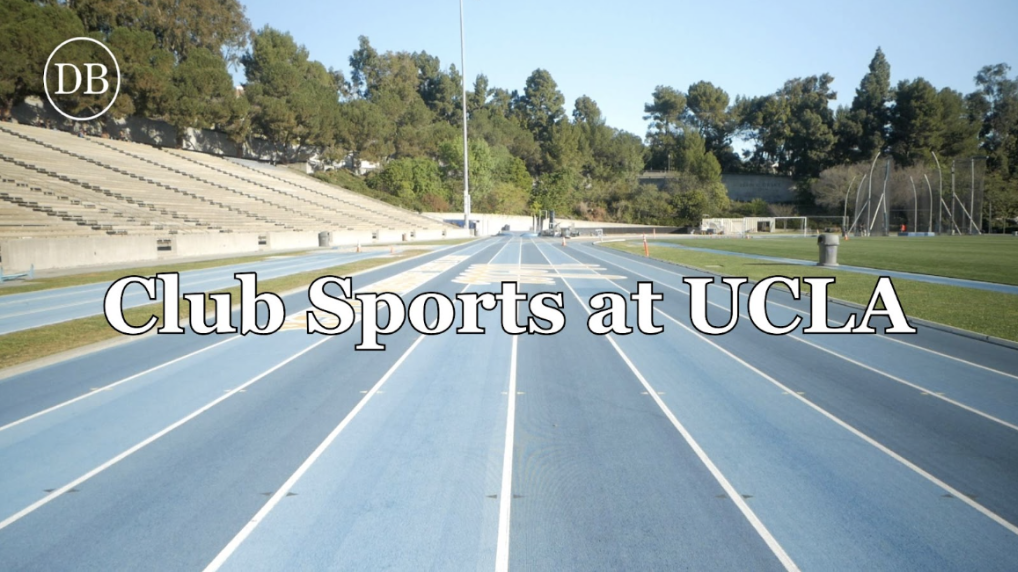‘Chosen family’: UCLA club quadball provides inclusive space within athletics
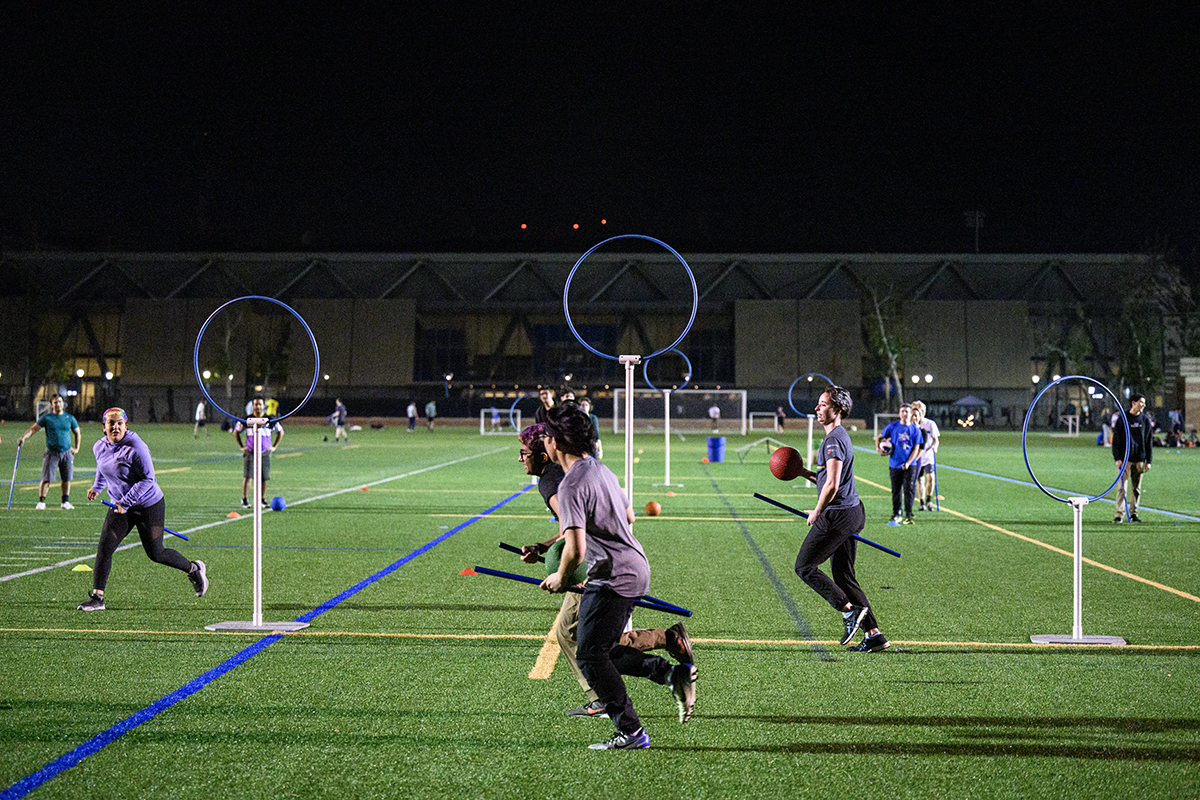
UCLA quadball players practice at the Intramural Field at UCLA. The team is set to host its first tournament on campus in several years over the weekend. (Jeremy Chen/Assistant Photo editor)
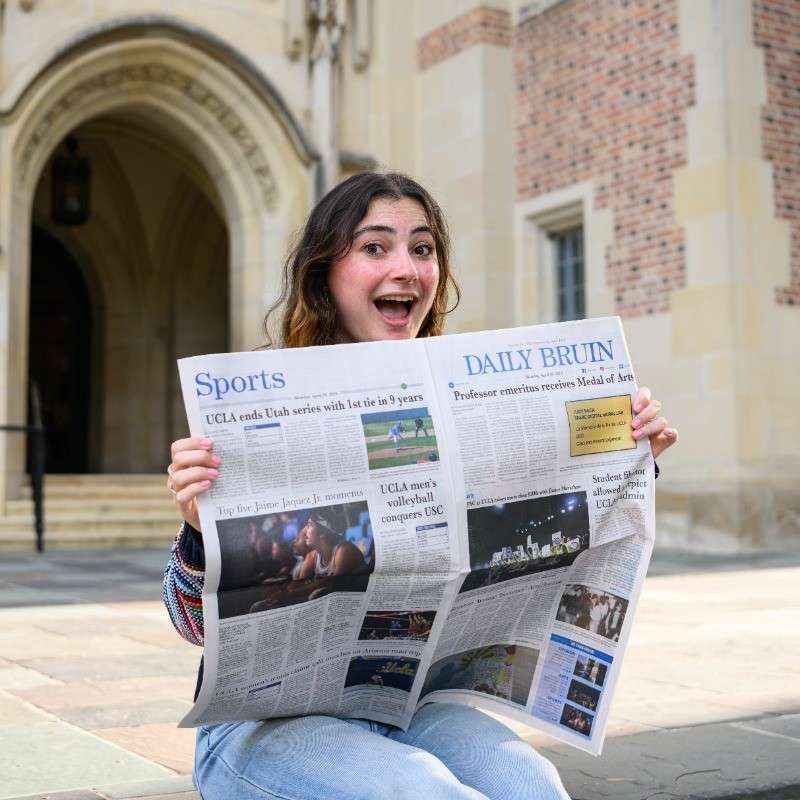
By Isabelle Friedman
Jan. 27, 2023 12:38 a.m.
This post was updated Jan. 27 at 12:40 a.m.
Nathaly Castrejon spent her freshman year isolated at home while taking classes through a computer screen.
Like many others, she took time over the pandemic to explore her interests, hobbies and, of course, TikTok. That’s where Castrejon found herself reintroduced to the world of “Harry Potter” in 2020, reviving her forgotten love for a favorite childhood series.
Itching to get involved on campus when she finally made her way to Westwood for her sophomore year, Castrejon knew she wanted to try out for the UCLA club Quidditch team.
Now a junior chaser midway through her final year at UCLA, Castrejon couldn’t imagine college without her team members.
“I like to think of them kind of as like a chosen family,” she said.
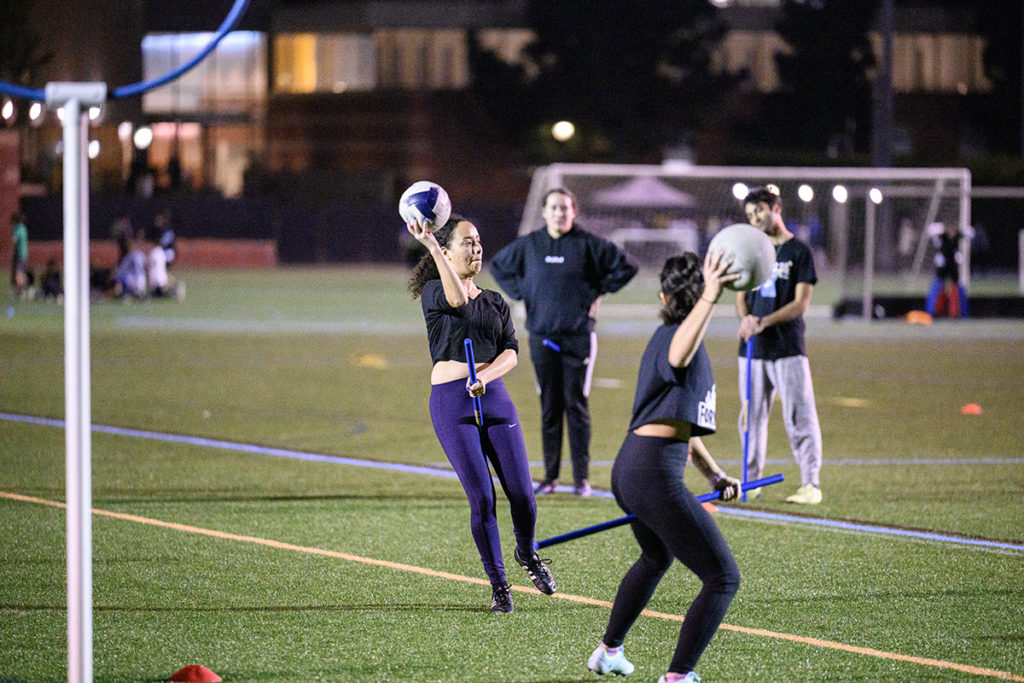
Although originally based on a magical sport played on flying broomsticks as described in J.K. Rowling’s “Harry Potter” novels, real-life Quidditch is played firmly on the ground and instead involves an arsenal of PVC pipes, originally brooms; dodgeballs, the adaptation of Bludgers; and a quadball, formerly known as a Quaffle. Even the iconic Golden Snitch makes an appearance.
Players described Quidditch as a mix of basketball, dodgeball and rugby. Even without the risk of falling off a broom hundreds of feet in the air, Castrejon said the UCLA squad rarely leaves a tournament without an injury.
She added that when her family saw how violent the sport can be, they tried to talk her out of it. But she told them it was too late.
Castrejon had already fallen in love with Quidditch.
Even though she and many others were initially drawn to the sport because of its connection to a beloved franchise, Quidditch has grown further away from the Wizarding World, as its governing board has strived to make the sport as competitive as possible. Last summer, Quidditch formally distanced itself from Rowling and “Harry Potter” by changing its name to quadball.
UCLA quadball players and coaches were in full support of the decision made by the league’s governing body and explained how the change was an effort to distance itself legally, as well as morally.
Quidditch is trademarked by Warner Bros., making it difficult for the sport to make money off sponsorships and merchandise using that name. For a new sport without large ticket sales, those fundraising components prove crucial for programs to stay afloat.
“The sport inspired by Quidditch is looking to continue to grow like other sports that have sprung from humble origins,” U.S. Quadball said in its statement announcing the change.
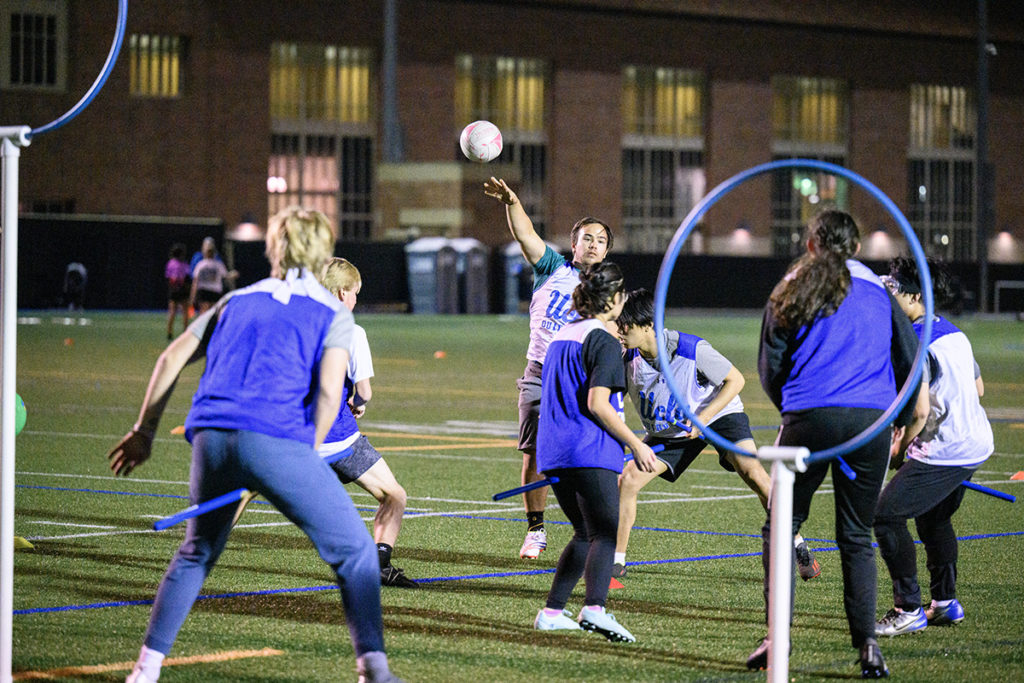
But quadball also changed its name in response to Rowling’s pattern of transphobic comments, which individuals as well as LGBTQ+ advocacy groups have criticized.
Senior beater and president of UCLA quadball Laine Nowak said Rowling’s values did not align with those of the sport she inspired. Quadball is open to any and all that wish to play.
“In the wake of J.K. Rowling’s transphobia online, we didn’t want our community to be associated with that at all anymore,” Nowak said. “We’re one of the only sports that is fully accepting of trans people and nonbinary people. … We didn’t want the transphobic aura of ‘Harry Potter’ looming over a sport which is such a good community.”
Initially drawn to collegiate quadball because of their childhood love for “Harry Potter,” coach Christian Krieger said Rowling’s actions were especially troubling given how the series resonated with many LGBTQ+ readers.
From Krieger’s perspective, Harry Potter wasn’t able to be himself at the start of the series, but he found a chosen family that accepted him unconditionally – mirroring the experiences of many queer people who search for a community that will accept them and support them in their sexual and gender identity.
“J.K. Rowling hasn’t really been the greatest ally of the LGBTQ community, which is very unfortunate because I feel like her books and her media did create a following for people that did identify that way,” Krieger said.
But while the creator of “Harry Potter” may not have lived up to the values of acceptance and inclusivity felt by many of the novels’ readers, quadball has long strived to be an accessible sport to all. According to Outside, quadball is one of the most inclusive sports for transgender athletes.
U.S. Quadball’s Title 9 ¾, named as a nod to the “Harry Potter” icon, restricts teams from having more than four people of the same gender on the pitch at once. However, the wording intentionally allows for the inclusion of nonbinary individuals to participate without needing to identify as male or female.
“You don’t have to make a decision and put yourself in a box. If you’re nonbinary, you get to play as nonbinary,” Nowak said.
U.S. Quadball said on its website that it wants to inspire other sports to be more gender inclusive and challenge the world’s perception of gender and sports as a whole, which is already evident on UCLA’s campus.
Senior keeper Soulaïmane Bentaleb, an international student from Morocco, said quadball was his first major exposure to topics such as gender inclusivity.
“I’ve never heard before of a completely gender-inclusive sport, and coming from an international background, those topics are not talked (about) at all in my country,” Bentaleb said. “I got to directly interact with people who come from different backgrounds with different gender identities, and I was able to understand what it means.”
Krieger agrees that quadball is one of the most inclusive sports to the queer community, as they’ve experienced it firsthand.
“I don’t think I would have ever come out as nonbinary if I didn’t exist in this community,” Krieger said.
As quadball develops further away from Rowling and the magical world she created, Krieger emphasized that the author is even less responsible for quadball’s creation than it may first appear.
Even though the sport was inspired by the world of “Harry Potter,” it was ultimately created by a couple of students at Middlebury College.
“She created this magical sport in the books where people have magic and are flying around on broomsticks and can hit these balls with bats and go hundreds of feet in the air,” Krieger said. “She had nothing to do with creating the actual sport we play.”
The sport has continued to evolve every year since it was first established, to the point where U.S. Quadball has released more than 10 official rulebooks since its founding in 2005.
The ever-developing nature of the sport is one of its most interesting aspects to Krieger. They wonder how the public perceived now-popular sports like basketball at first. Who had ever seen someone bounce a leather ball and call it dribbling?
“It’s a constantly evolving sport of trying to figure out, ‘OK, how do we make this better?’ It’s very interesting to be a part of a sport that is in its infancy,” Krieger said.
Given its youth, quadball is accessible to athletes of all backgrounds, unlike many other sports where one’s competing against players that might have been learning since they could barely walk.
Castrejon said no one comes in with any experience playing quadball before college, and she didn’t come in with any athletic background either, but quadball is open to everyone. There are few competitive club sports at UCLA that can say the same.
“It’s a relatively new sport, and everybody’s still learning,” Castrejon said. “There’s no requirement for who you have to be or how athletic. It’s just a great sport to learn.”
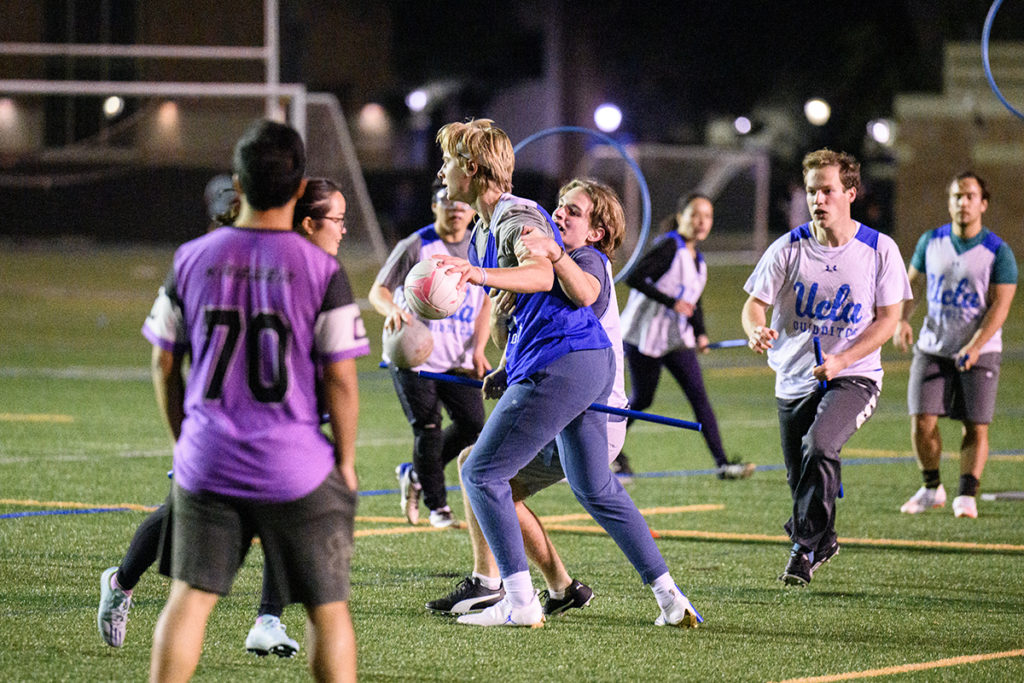
Quadball further separates itself from other club sports on campus by not collecting dues from players. Instead, the program pays for tournament travel through fundraising as an effort to make the sport financially accessible to everyone.
UCLA has qualified for the national tournament every year, and 2023 is expected to be no exception.
So far this season, the Bruins have played in both official and non-official tournaments, including a road trip up to the Bay Area. At the Chandra Classic V in November, UCLA went 3-1 in a pool of West Coast schools, but Nowak said the team is aiming to improve to first at regionals in February.
Before then, however, the Bruins are hosting their first on-campus tournament in years, welcoming top quadball programs from around the nation to Heroes vs. Villains IV. California, Michigan, Texas, Creighton and Arizona State will be present, in addition to a collection of non-collegiate teams. The tournament will kick off on the Intramural Field on Saturday morning.
“It’s going to be a tournament of a high caliber, and we’re excited to take on that challenge,” Castrejon said.
Quadball’s competitive spirit is one of its defining characteristics, Bentaleb said. But even greater is the team’s community, which has become home for Krieger, Bentaleb, Nowak, Castrejon and many other Bruins that stop by the Intramural Field and pick up a quadball.
Bentaleb said he can’t wait to get back on the pitch.
“Quidditch is the only club that I’ve been active in all four years of my college experience,” Bentaleb said. “Every time I was away from the sport for a while, I missed it.”



